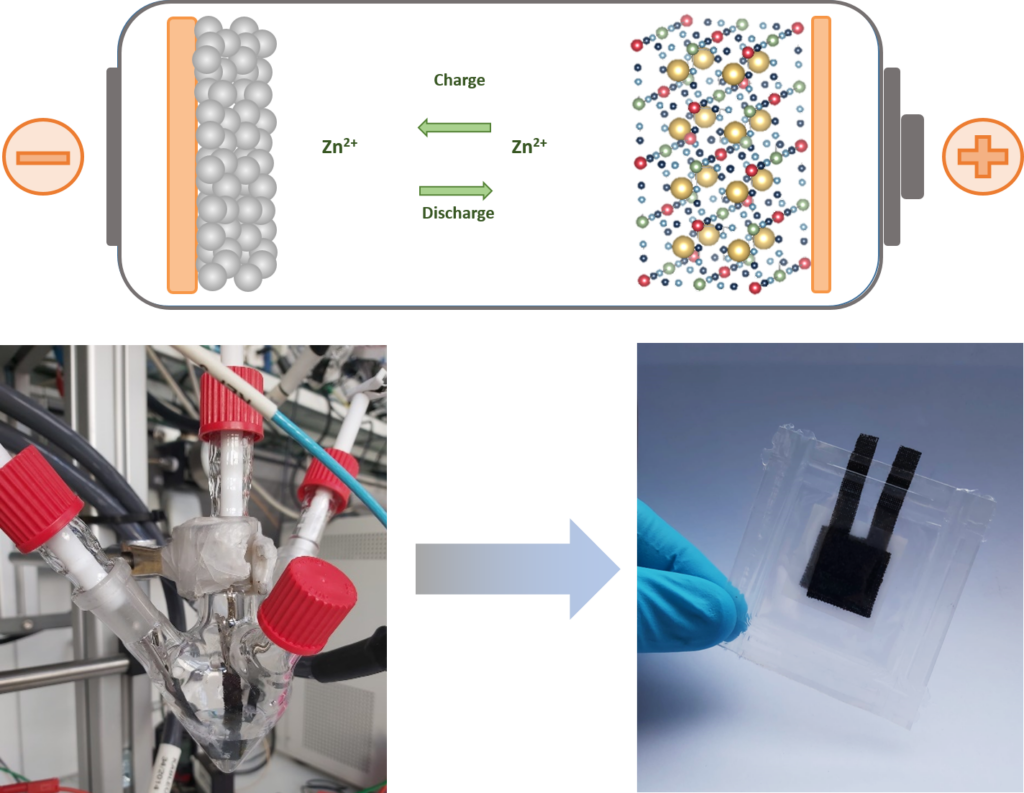The aim of this sub-project from the side of the research group of Prof Dr. Fabio La Mantia is to optimize the active materials for aqueous Zn-ion batteries and to identify the compatibility between the components of the zinc-ion cell in order to accelerate the commercialization of the aqueous Zn-ion technology.
In order to accelerate the penetration of the aqueous zinc-ion technology into the stationary energy storage market, it is of utmost importance to develop long-lasting, efficient and highly reversible zinc-ion cells based on low-cost and non-hazardous materials. To achieve this, we will focus not only on the development of new materials, but also on the interactions between the cell components that affect the battery’s lifetime under real-life conditions.
For this reason, the group of Prof La Mantia at the University of Bremen will pursue three strategies:
- development of efficient substrates for the electrodeposition of zinc at the negative electrode;
- development of sustainable Prussian blue analogues for the positive electrode;
- identification of ageing mechanisms caused by undesired interactions between the components of the zinc ion components of the zinc-ion cell.
Advanced in-operando analytical tools, such as the differential electrochemical mass spectrometry (DEMS) and dynamic multi-frequency analysis (DMFA), will be used together with established electrochemical analysis to identify the phenomena occurring at the single electrodes and among the components of a Zn-ion cell. In addition to the battery performance, environmental friendliness, safety and cost of the materials will also be considered.

Publications
- M. Baghodrat, J. Glenneberg, G. Zampardi, F. La Mantia, “Harnessing the Benefits of PEDOT : PSS Conductive Coating for Prolonged Cycle Life of Copper Hexacyanoferrate in Aqueous Zinc-Ion Batteries”
Batteries & Supercaps 7 (2024). - M. Tribbia, J. Glenneberg, F. La Mantia, G. Zampardi “Effect of the Current Density on the Electrodeposition Efficiency of Zinc in Aqueous Zinc-Ion Batteries“
ChemElectroChem 11 (2023).
| Funding institution and program: | Federal Ministry for Education and Research – BMBF (Bundesministerium für Bildung und Forschung) |
| Grant agreement number: | FKZ 03XP0523B |
| Project acronym: | ZIB2 |
| Coordinator of the Consortium: | VARTA Microbattery GmbH |
| Host Institution (HI): | Universität Bremen |
| Funding: | 684.788 € |
| Duration of the project: | Start date: 01.02.2023 End date: 31.01.2026 |